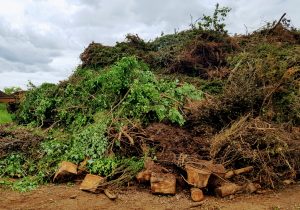Did you hear there are new rules on Long Island for facilities that manage land clearing debris and compost? Do you know if they apply to your facility?
Is the term “land clearing debris” something new?
It would make sense for you to look for “land clearing debris” in the new 6 NYCRR Part 360 Solid Waste Management rules for New York, particularly under Part 361 for “mulching” or “composting” facilities, but you had no such luck finding it, right?
CONFUSED?
The definition you are looking for is in a new Environmental Conservation Law (ECL), which was enacted shortly after the newly adopted Part 360/361 regulations in New York State.
Your facility is considered one that accepts land clearing debris if it receives vegetative matter, soil and rock, inclusive of trees, stumps, brush and leaves, as well as wood chips generated from these materials.
Land clearing debris is material that is generated from activities such as:
- Land clearing and grubbing
- Utility line maintenance
- Seasonal or storm-related cleanup
A composting facility, under the same ECL for its purpose, is defined as a facility that accepts greater than 3,000 cubic yards of composting waste material per year (both processed and unprocessed).
If you manage these materials in Nassau and Suffolk Counties, your facility will soon need to meet new requirements for water quality testing, groundwater and surface water body protection, and protection of the environment.
These requirements are in addition to the rules currently in Part 361, and the Part 360 regulations are required to be modified accordingly. Updates for public comment are expected in 2019.
For more information on New York State’s new plans for mulching and composting facilities for the protection of groundwater, click here.
Feel free to give Walden a call at 516-604-5684 or read our solid waste blogs for more current information: the final Part 360 regulations took effect on July 22, 2023. Our solid waste engineering team is well-equipped to help your facility with any and all compliance concerns.

